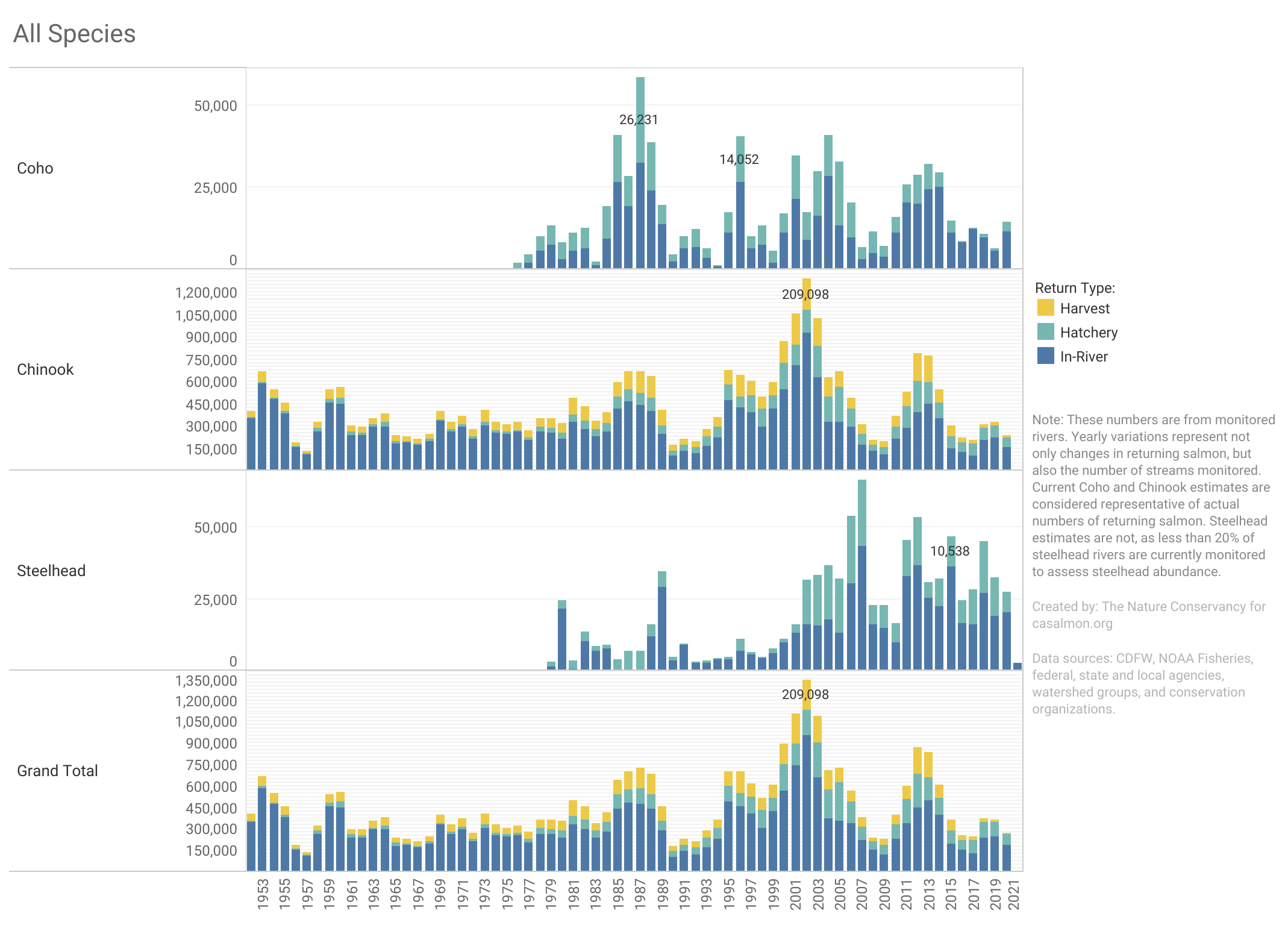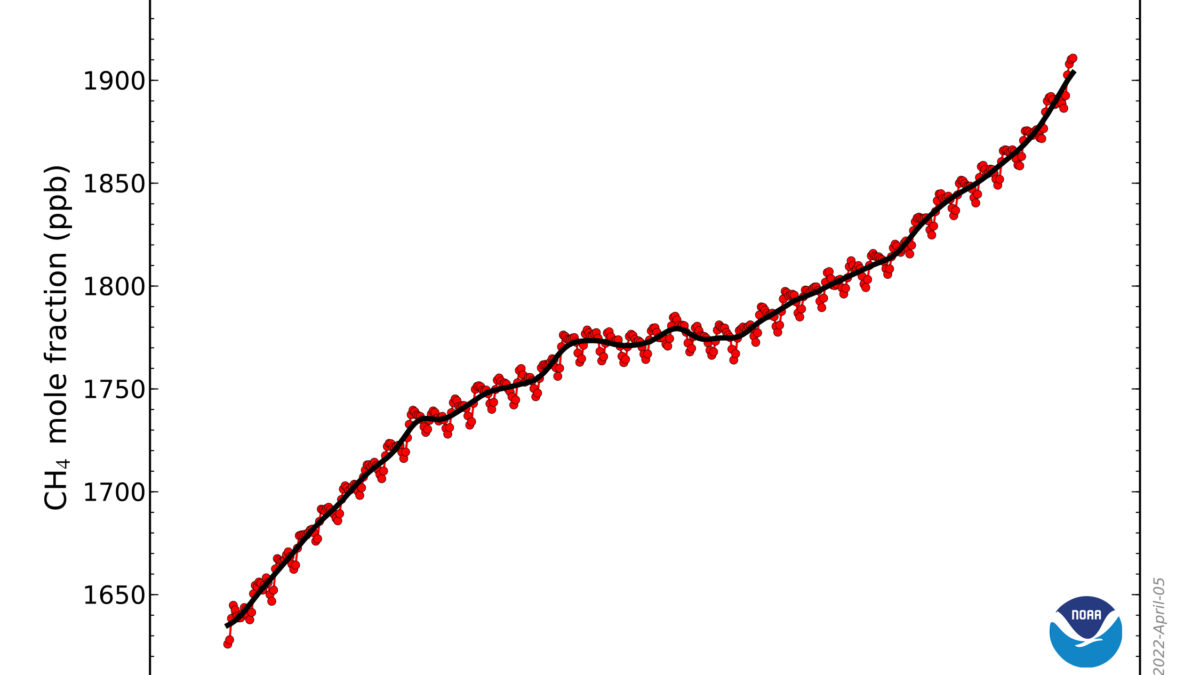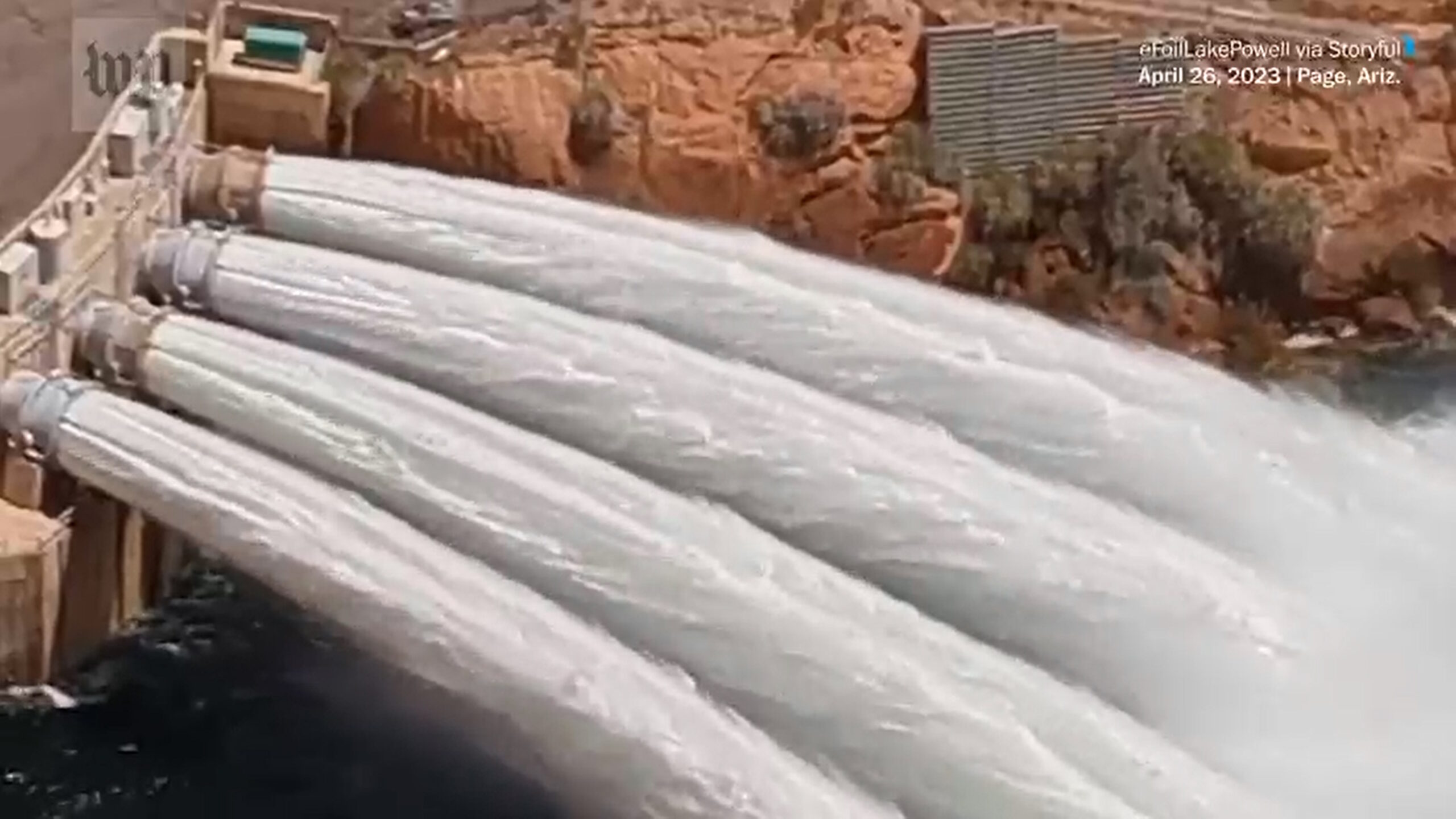Years of drought force shutdown of salmon fishing season off California

By Dino Grandoni
6 April 2023
(The Washington Post) – Years of drought have taken such a toll on California’s fall run of Chinook salmon that, for the first time in 14 years, fishery managers are canceling next year’s fishing season off the state’s coast to help the population recover.
The Pacific Fishery Management Council, a quasi-federal body that oversees West Coast fisheries, finalized a decision Thursday to recommend closing the salmon season until next spring. NOAA Fisheries, a federal agency, is expected to implement the closure. Salmon fishing off the coast of much of Oregon also will be limited.
The canceled salmon season comes as recreational anglers, professional fishers and biologists have watched populations of the largest species of Pacific salmon plummet off the coast of California. Before the recent winter storms, drought and heat waves drained and warmed the state’s rivers and reservoirs, hampering the ability of salmon to spawn and reach the ocean safely.Competition among farmers, urban residents and wildlife managers over dwindling water resources have only made matters worse.
Fewer than 170,000 adult fall Chinook salmon are expected to try to return to the Sacramento River this year, one of the lowest estimates ever from state and federal scientists. And there are only about 104,000 destined to try to go back to the Klamath River, the second lowest forecast since such assessments began in 1997.
The two stocks are “the backbone of those ocean fisheries,” said Robin Ehlke, a salmon staff officer for the council. The last time managers were compelled to cancel the region’s salmon season was in 2008 and 2009.

Like other salmon, the Chinook, or king salmon, hatches in streams, heads to the ocean to feed and returns inland to its birthplace to spawn. After breeding, the adults die, new salmon hatch and the cycle starts anew. The fish relies on cool, high-flow rivers to make that mighty migration. Drought makes rivers run warmer and slower, rendering them less hospitable for Chinook.
“Salmon flourish when we have very wet conditions,” said Steve Lindley, fisheries ecology division director at the NOAA Fisheries’ Southwest Fisheries Science Center. “Cool temperatures are good for the eggs. They survive better. And when the juveniles then migrate to the ocean, if there are high flows, they survive much, much better.”
“None of those things were happening very often in the last decade,” he added.
The closure hits a $1.4 billion fishing industry that supports 23,000 jobs in California, according to the Golden State Salmon Association. The decision curtails both commercial and recreational salmon fishing off California. Despite the economic hit, many who rely on fishing salmon for a living acknowledge the need to cancel the fishing season.
“It’s a really painful conclusion to reach, but for a number of reasons, it’s probably the right decision,” said Sarah Bates, a salmon captain out of San Francisco.
After heavy rain pummeled California this year, the state has more water than it knows what to do with. While the flooding is hard on the state’s human residents, salmon soon stand to gain from the fuller rivers.
“This should be good for the salmon,” Lindley said. “We should see benefits from this in a few years.” [more]
Years of drought force shutdown of salmon fishing season off California

